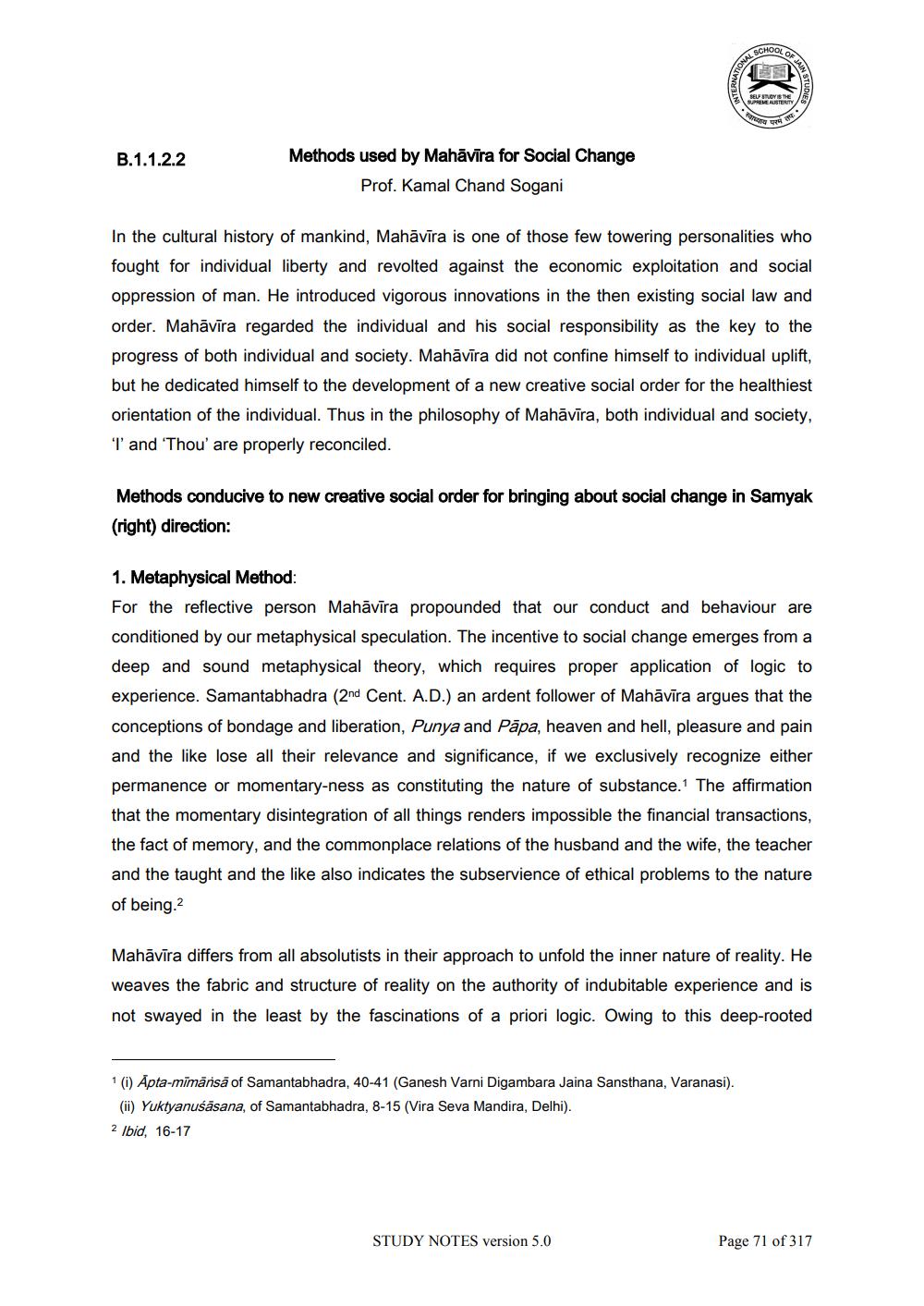________________
B.1.1.2.2
Methods used by Mahāvīra for Social Change
Prof. Kamal Chand Sogani
In the cultural history of mankind, Mahāvīra is one of those few towering personalities who fought for individual liberty and revolted against the economic exploitation and social oppression of man. He introduced vigorous innovations in the then existing social law and order. Mahāvīra regarded the individual and his social responsibility as the key to the progress of both individual and society. Mahāvīra did not confine himself to individual uplift, but he dedicated himself to the development of a new creative social order for the healthiest orientation of the individual. Thus in the philosophy of Mahāvīra, both individual and society, T and 'Thou' are properly reconciled.
Methods conducive to new creative social order for bringing about social change in Samyak (right) direction:
1. Metaphysical Method: For the reflective person Mahāvīra propounded that our conduct and behaviour are conditioned by our metaphysical speculation. The incentive to social change emerges from a deep and sound metaphysical theory, which requires proper application of logic to experience. Samantabhadra (2nd Cent. A.D.) an ardent follower of Mahāvīra argues that the conceptions of bondage and liberation, Punya and Pāpa, heaven and hell, pleasure and pain and the like lose all their relevance and significance, if we exclusively recognize either permanence or momentary-ness as constituting the nature of substance. The affirmation that the momentary disintegration of all things renders impossible the financial transactions, the fact of memory, and the commonplace relations of the husband and the wife, the teacher and the taught and the like also indicates the subservience of ethical problems to the nature of being. 2
Mahāvīra differs from all absolutists in their approach to unfold the inner nature of reality. He weaves the fabric and structure of reality on the authority of indubitable experience and is not swayed in the least by the fascinations of a priori logic. Owing to this deep-rooted
1 (i) Apta-mīmārsā of Samantabhadra, 40-41 (Ganesh Varni Digambara Jaina Sansthana, Varanasi).
(ii) Yuktyanuśäsana, of Samantabhadra, 8-15 (Vira Seva Mandira, Delhi). 2 lbid, 16-17
STUDY NOTES version 5.0
Page 71 of 317




